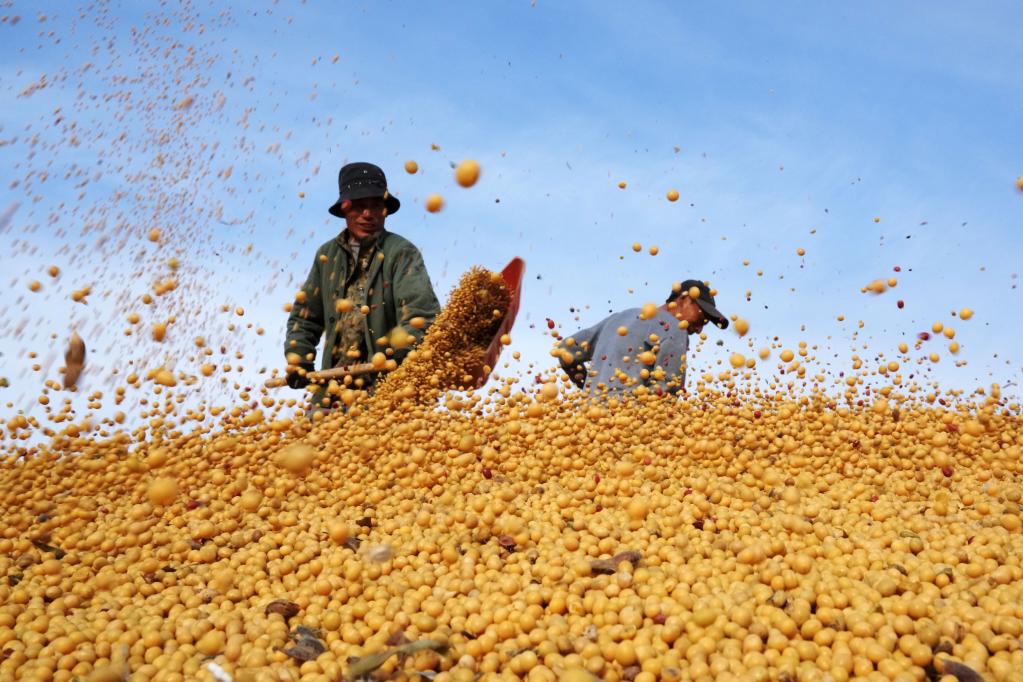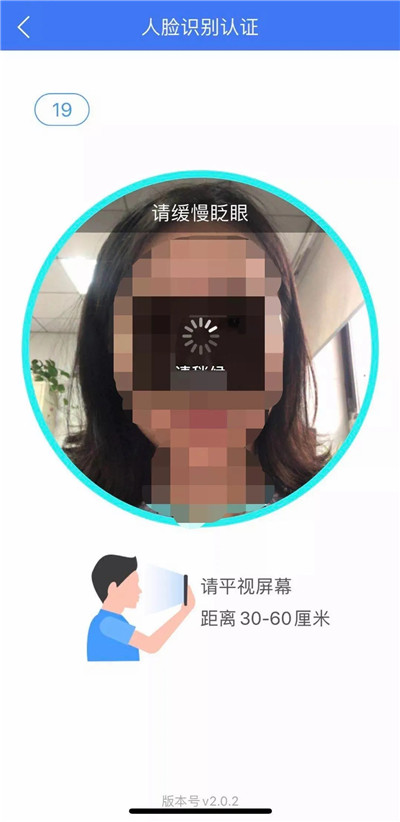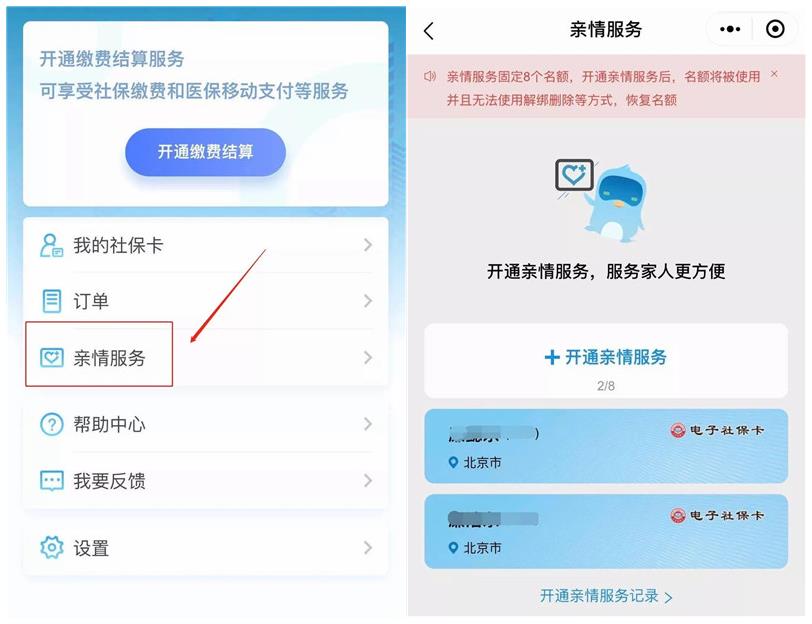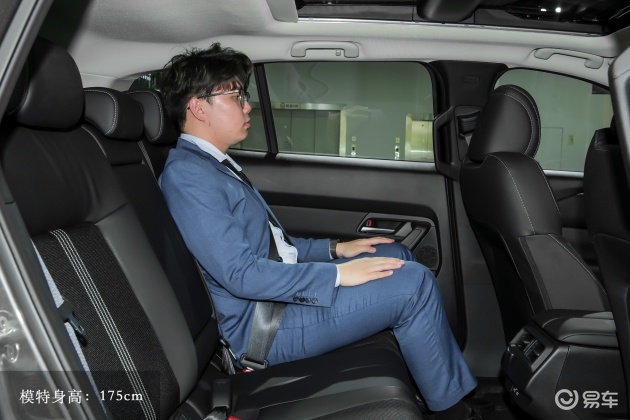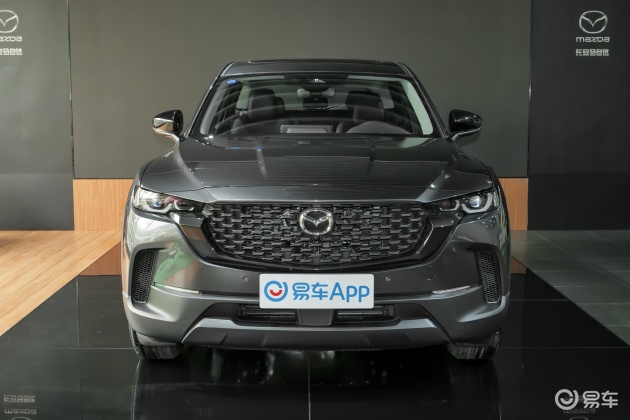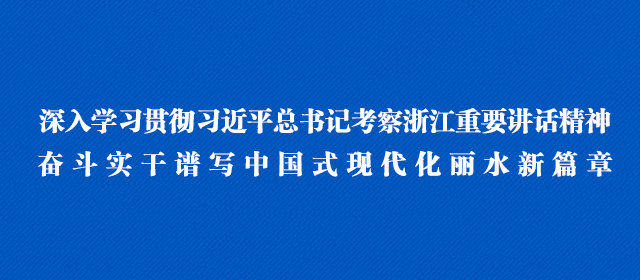Kexing Pharmaceutical Albumin Paclitaxel was officially approved for listing by the European Union.
On the evening of July 28th, Kexing Pharmaceutical announced that the company’s paclitaxel for injection (albumin-bound paclitaxel) (hereinafter referred to as "albumin paclitaxel") was approved for listing by the European Commission. This variety was authorized to be imported by the company in April 2021 in cooperation with Zhejiang Haichang Biomedical Technology Co., Ltd., and the two parties worked together to develop China, Europe and other markets except the United States.
The announcement shows that albumin paclitaxel has the advantages of clinical medication. Compared with ordinary paclitaxel injection and paclitaxel liposome, its safety and patient compliance are improved, and its clinical recognition is high. It is the mainstream first-line drug for the treatment of metastatic pancreatic cancer and non-small cell lung cancer and the second-line drug for the treatment of breast cancer recommended by the European Society of Medical Oncology.
Based on the recognition of the efficacy of albumin paclitaxel, Kexing Pharmaceutical introduced albumin paclitaxel from Haichang Bio, and set up a special production line to carry out related research according to the quality requirements of complex injections in the EU and China, which was consistent with the original reference preparation in terms of quality indicators.
The EU approval of albumin paclitaxel is an important milestone for Kexing Pharmaceutical to go to sea. This means that in addition to the long-established emerging markets, its commercialization map is expanding to the European market. Kexing Pharmaceutical said that in the future, Kexing Pharmaceutical will continue to strengthen its layout in Europe, America and other mature markets, and further expand the global coverage of its products.
Hengrui Pharma: Notice of Approval of SHR-A1921 for Injection for Drug Clinical Trial.
() On the evening of July 29th, it was announced that Suzhou Shengdiya Biomedical Co., Ltd., a subsidiary of the company, received the Notice of Approval for Clinical Trial of Drugs on SHR-A1921 for Injection approved by National Medical Products Administration, and will conduct clinical trials in the near future. SHR-A1921 for injection is an antibody-drug conjugate (ADC) targeting TROP2 tumor-associated antigen. After binding with the target antigen on the surface of tumor cells, SHR-A1921 enters the cells through endocytosis and kills tumor cells by releasing small molecular toxins.
() A shareholders’ meeting will be held on August 14th to consider the proposal of adjusting the amount of investment in investment projects raised by issuing shares to specific targets.
Hongchang Electronics announced that the first extraordinary general meeting of shareholders will be held on August 14th, 2024, and online voting will be conducted on the same day. Date of record is August 7th, and investors who hold shares of Hongchang Electronics can vote after the market closes on that day.
Meeting place: Company meeting room, Room 212, Building 3, Poly Zhongchuang Incubator, No.728 Chuangchuang Avenue, Huangpu District, Guangzhou.
A total of 1 proposal was audited at this general meeting of shareholders, as follows:
1. Proposal on adjusting the amount of investment in investment projects raised by issuing shares to specific targets.
Tongce Medical Subsidiary plans to spend 23 million yuan to purchase medical cloud clinical information system from related parties.
() Announced that Hangzhou Tongce Stomatological Hospital Management Co., Ltd., a wholly-owned subsidiary of the company, purchased the medical cloud clinical information system from the related party Zhejiang Meihesuo Information Technology Co., Ltd. for hospital operation. The transaction amount was 23 million yuan, and the source of transaction funds was its own funds.
This related party transaction is a decision made by the company based on the needs of hospital operation. The application of medical cloud information system will play a positive role in improving the efficiency, service level and management level of hospital diagnosis and treatment.
Mass transportation: the intelligent networked car model is still in the experimental stage.
() Announcement, the company is concerned that the intelligent networked car has been highly concerned by the market recently. This model is still in the experimental stage, which basically does not generate income for the company. There are still uncertainties in the future business development trend, which will not have a significant impact on the company’s business activities in the short term. Investors are advised to make careful decisions and pay attention to investment risks.
Liantai Environmental Protection received the advance notice of administrative punishment from Guangdong Securities Regulatory Bureau.
() Announcement: Huang Wanru, the company and one of its actual controllers, recently received the Notice of Administrative Punishment in advance issued by Guangdong Supervision Bureau of China Securities Regulatory Commission ("Guangdong Securities Regulatory Bureau"). The case of the company and Huang Wanru suspected of violating laws and regulations in information disclosure has been investigated by Guangdong Securities Regulatory Bureau, and Guangdong Securities Regulatory Bureau plans to impose administrative penalties according to law:
Order the company to make corrections, give a warning and impose a fine of 3.5 million yuan; Huang Wanru was given a warning and fined 4.7 million yuan, including 3.5 million yuan as the actual controller and 1.2 million yuan as the responsible person; Give a warning to Huang Jiane and impose a fine of 900,000 yuan; Give Zhang Rong a warning and impose a fine of 900,000 yuan; Give Yang Jihua a warning and impose a fine of 900,000 yuan; Give a warning to Lin Jinshun and impose a fine of 700,000 yuan; Yang Kuijun and Qing Yu were given warnings and fined 500,000 yuan respectively.
Guoxin Technology: The new high-performance MCU product developed by the company has been successfully tested internally.
On July 29th, Guoxin Technology announced that the new-generation high-performance MCU product "CCFC3012PT" developed by the company has been successfully tested in the company recently. CCFC3012PT, a new high-performance MCU product for automotive electronics, which was successfully tested by the company this time, is a new generation of multi-core MCU chip based on the C*CoreCPU core of the company’s independent PowerPC architecture. It is suitable for applications such as intelligent vehicle assisted driving, intelligent cockpit and highly integrated domain controller, and can better meet the application requirements of customers with higher computing power, higher information security level and higher functional security level.
124 million restricted shares of Fangyuan will be listed and circulated on August 6th.
Fangyuan shares announced that the company’s total number of shares listed and circulated this time was 124 million shares, and the listing date was August 6, 2024.
Public transportation: the stock price has increased greatly in the near future, and there may be a downside risk after a short-term increase.
On the evening of July 29th, Mass Transit issued a stock trading risk warning notice, saying that the company was concerned that the intelligent networked car was highly concerned by the market recently. This model is still in the experimental stage, which basically does not generate income for the company, and the future business development trend is still uncertain, which will not have a significant impact on the company’s business activities in the short term. The stock price has risen sharply recently, and there may be a downside risk after a short-term increase. Investors are advised to invest rationally, make prudent decisions and pay attention to preventing investment risks.
Guoxin Technology: The internal test of the new high-performance MCU product of the new generation of automotive electronics succeeded.
Guoxin Technology announced that the new-generation high-performance MCU product "CCFC3012PT" developed by the company has been successfully tested in the company recently.
CCFC3012PT, a new high-performance MCU product for automotive electronics, which was successfully tested by the company this time, is a new generation of multi-core MCU chip based on the C*Core CPU core of the company’s independent PowerPC architecture. It is suitable for applications such as intelligent vehicle assisted driving, intelligent cockpit and highly integrated domain controller, and can better meet the application requirements of customers with higher computing power, higher information security level and higher functional security level.
The company has completely independent intellectual property rights for the above chip products. The successful research and development of this new product further enriches the company’s high-end automotive electronic MCU product series, which will have a positive impact on the market expansion and performance growth of the company’s future automotive electronic business, and is expected to contribute to solving the problem of "lack of core" of high-end MCU chips in China’s automobile industry, especially in new energy automobile industry.
Pinming Technology: Received 1.82 million government subsidies.
Pinming Technology announced that the company received a single government subsidy of RMB 1.82 million on July 29, 2024, which was a government subsidy related to income. The above subsidies have not been audited, and the final accounting treatment and the impact on the company’s profits and losses shall be subject to the results confirmed by the audit institution’s annual audit.
Saite New Materials: It is planned to invest 500 million yuan to build a vacuum insulation board project with an annual output of 5 million square meters.
On July 29th, Saite New Materials announced that it planned to build Liancheng vacuum insulation board project in northern Xincheng, Liancheng County, Fujian Province. The total investment of the project is 500 million yuan, the investment in fixed assets is 380 million yuan, the planned land for the project is about 85 mu, and the standardized factory building is planned to be 35,000 square meters. After it is completed and put into operation, 20,000 tons of centrifugal cotton will be added, and the annual production capacity of vacuum insulation board will be 5 million square meters.
Bird shares repurchased 234% of the shares at a cost of 55,490,200 yuan.
() Announcement: As of the date of this announcement, the company has completed the repurchase. Actually, 18 million shares of the company were repurchased, accounting for 2.34% of the company’s total share capital. The highest purchase price was 3.20 yuan/share, and the lowest price was 3.03 yuan/share. The total amount paid was 55.4902 million yuan (excluding transaction costs).
Chunqiu Electronics: It is planned to transfer 65% equity of Nanchang Chunqiu, a holding subsidiary, to Shanghai Moqin.
On July 29th, () announced that the company intends to transfer 65% equity of its holding subsidiary Nanchang Chunqiu Electronic Technology Co., Ltd. to Shanghai Moqin Intelligent Technology Co., Ltd., with a transaction amount of 347.5 million yuan.
Saite New Materials: Invest 500 million yuan to build a vacuum insulation board project.
Saite New Materials announced that the company plans to invest 500 million yuan to build a vacuum insulation board project with an annual output of 5 million square meters in northern Xincheng, Liancheng County, Fujian Province. The project adopts four-sided sealing production technology, the construction period is 48 months, and the source of funds is self-owned and self-raised funds. The project aims to enhance the company’s glass wool core material supply capacity, expand the production scale of vacuum insulation board, improve the reliability and stability of product performance, broaden the downstream application scenarios and further enhance the company’s competitiveness.
(): It is concerned that the concept of automobile dismantling has been highly concerned by the market recently, and the revenue of bus dismantling business of subsidiaries is relatively small.
Transportation shares issued a stock trading risk warning announcement, and the company paid attention to the recent concept of automobile disassembly, which was highly concerned by the market. The business scope of Shanghai Jiaoyun Bus Disassembly Co., Ltd., a subsidiary of Shanghai Auto Repair Co., Ltd. (a wholly-owned subsidiary of the company), includes automobile disassembly business. The main business of bus dismantling includes recycling, dismantling and comprehensive utilization of scrapped cars, and wholesale and retail of used auto parts. The business income (consolidated) of bus dismantling in 2023 was 54,533,100 yuan, accounting for 1.05% of the company’s business income, and its business income accounted for a relatively small proportion. At present, the bus dismantling operation is normal, which will not have a significant impact on the company’s business activities in the short term.
Chunqiu Electronics: 65% equity of Nanchang Chunqiu was transferred with a transaction amount of 348 million yuan.
Chunqiu Electronics announced that the company intends to transfer 65% equity of Nanchang Chunqiu, a holding subsidiary of Shanghai Moqin, with a transaction amount of 348 million yuan. The transaction has been reviewed and approved by the board of directors and the board of supervisors of the company, and it still needs to be submitted to the shareholders’ meeting for consideration. After the transaction is completed, Chunqiu Electronics will no longer hold the equity of Nanchang Chunqiu. The equity transfer aims to concentrate the company’s resources, develop advantageous industries, reduce the risk of asset management and control, and improve the company’s profitability. The transaction does not constitute a connected transaction or a major asset reorganization.
Saite New Materials plans to invest 500 million yuan to build Liancheng vacuum insulation board project to expand the production scale of vacuum insulation board.
Saite New Materials announced that the company, as a leading enterprise in the global vacuum insulation board industry, has good market competitiveness in terms of production technology, product performance, manufacturing cost and quality control, and its sales scale is expanding continuously. At the same time, the company has long been committed to exploring advanced production methods to improve product performance and reliability, and continuously promoted the research and development of new technologies, equipment and related materials for four-sided sealing of vacuum insulation board. The shell-type four-sided sealed vacuum insulation board adopts the bottom shell pre-forming process. The product structure has stronger deformation resistance and puncture resistance, and there is no flanging process in the production process, which solves the problem of unstable product performance caused by flanging, improves production efficiency and product reliability, and is helpful for the company to further expand the downstream application markets such as building insulation. As of the disclosure date of this announcement, the company has completed the assembly and debugging of a single four-sided sealing packaging unit, which can realize vacuum packaging, and basically completed the drawing design of mass production machines, and successively introduced samples to customers. Based on the above situation, the company plans to invest 500 million yuan in the northern Xincheng of Liancheng County, Fujian Province, mainly adopting the four-sided sealing production process, and build a vacuum insulation board project with an annual output of 5 million square meters (hereinafter referred to as "Liancheng vacuum insulation board project") to meet and expand the future market demand.
In recent years, the demand growth of downstream industries has provided a good market opportunity for vacuum insulation board enterprises. The implementation of this project will help the company to enhance the supply capacity of glass wool core materials, expand the production scale of vacuum insulation board, improve the reliability and stability of product performance and the automation level of production process, broaden the downstream application scenarios, further enhance the company’s competitiveness and consolidate the company’s industry position.
Xiangyu, Xiamen: Directors Increase Shares in the Company
On the evening of July 29th, () announced that on July 29th, 2024, Mr. Zhang Shuili, the director of the company, increased his holdings of 30,400 shares through the centralized bidding trading system of Shanghai Stock Exchange.
Shibei High-tech: Ma Huimin was appointed as the general manager of the company.
On the evening of July 29th, () announced that the company held the 10th meeting of the 10th Board of Directors on July 29th, 2024, and deliberated and passed the Proposal on Appointing the General Manager of the Company. The Board of Directors decided to appoint Mr. Ma Huimin as the general manager of the company, and his term of office was the same as that of the 10th Board of Directors.
Zhuolang Technology: Received 40.43 million yuan performance commitment compensation.
() Announcement, the company recently received a performance commitment compensation of 40.43 million yuan paid by Zhang Kunyu. According to the reorganization plan, Zhang Kunyu promised that the accumulated net profit of Songjiang shares in 2022 and 2023 would not be less than 320 million yuan. After auditing, the actual net profit was 280 million yuan, and the difference was 40.43 million yuan. As of the announcement date, Zhang Kunyu has paid the compensation in full and fulfilled the performance commitment compensation obligation.
CCB Financial, the shareholder of Huasu, intends to reduce its shareholding by no more than 1%.
() Make an announcement. Within 3 months after the expiration of 15 trading days from the date of announcement, CCB Financial, the shareholder, intends to reduce its holdings by centralized bidding, with a total amount of no more than 35.074 million shares and no more than 1% of the company’s total share capital.
Shaanxi Construction Co., Ltd.: Change the sponsor representative
On the evening of July 29th, () announced that the company had recently received the Letter on Changing the Sponsor Representative issued by Debon Securities Co., Ltd. (referred to as "Debon Securities"). Mr. Deng Jianyong, the sponsor representative originally appointed by Debon Securities, no longer serves as the sponsor representative for the continuous supervision of the parties concerned to fulfill their commitments and obligations due to the change of work. In order to ensure the orderly progress of the continuous supervision, Debon Securities appointed Mr. Ren Hao Chun, the sponsor representative, to take over the continuous supervision of Mr. Deng Jianyong and perform the duties of continuous supervision. After this change, the sponsor representative for the continuous supervision of the parties involved in the share-trading reform of the company to fulfill their commitments and obligations is Ren Hao Chun, and the continuous supervision period is until the end of the continuous supervision obligations stipulated by the China Securities Regulatory Commission and the Shanghai Stock Exchange.
Huasu shares: Shareholder Jianxin Finance intends to reduce its shareholding by no more than 1%.
Huasu announced on the evening of July 29th that Jianxin Financial Assets Investment Co., Ltd. (hereinafter referred to as "Jianxin Finance"), a shareholder holding 7.69% of the company’s shares, intends to reduce its holdings by a total of no more than 35.074 million shares through centralized bidding, which does not exceed 1% of the company’s total share capital.
Xianglong Electric Power Company: Changing Accounting Firm
On the evening of July 29th, () announced that the name of the accounting firm to be employed by the company was Daxin Certified Public Accountants (special general partnership). The name of the original appointed accounting firm is Zhongshen Zhonghuan Certified Public Accountants (special general partnership) (hereinafter referred to as "Zhongshen Zhonghuan"). Reasons for changing the accounting firm: According to the Administrative Measures for the Selection and Appointment of Accounting Firms by State-owned Enterprises and Listed Companies, the company shall, in principle, continue to employ the same accounting firm for no more than 8 years, and Zhonghuan has served the company for more than 8 years.
Haiyou New Materials: The subsidiary plans to invest $6.5 million in Australia.
Haiyou New Materials announced that Pinghu Haiyouwei, a subsidiary, plans to invest in the construction of photovoltaic module recycling technology and application center project in Australia, with a total investment of no more than 6.5 million US dollars. The project will be implemented by CYCLESUN PTY LTD, the main body of the project established by Pinghu Haiyouwei in Australia. The source of funds is self-owned or self-raised, and the estimated construction period is 1-2 years. The purpose of this investment is to expand the company’s innovative technology and new business areas, and enhance the company’s international market competitiveness and comprehensive risk resistance.
3 Lianban Linhai Co., Ltd.: At present, all normal business segments of production and operation activities have not changed significantly.
On July 29th, () issued a risk warning announcement on stock trading. The company’s stock rose greatly in the short term, but the company’s fundamentals did not change significantly, and the downside risk faced in the later period was greater. The company’s products mainly involve the special vehicle (all-terrain vehicle) industry, agricultural machinery industry, fire fighting machinery industry and motorcycle industry. The main competitors come from the same industry companies at home and abroad and listed companies in their sub-sectors. At present, the company’s production and operation activities are all normal, and the internal production and operation order is normal. The company’s business has remained stable in recent years, with no major changes in its business segments, major customers and fundamentals.
Pingmei shares: the controlling shareholder plans to increase the company’s shares by 300 million yuan to 600 million yuan.
On July 29th, () it was announced that China Pingmei Shenma Group, the controlling shareholder, planned to increase its holdings of circulating A-shares through centralized bidding through the trading system of the Shanghai Stock Exchange within six months from July 30th, 2024, with the cumulative increase of not less than 300 million yuan and not more than 600 million yuan, and the cumulative increase of holdings should not exceed 2% of the company’s total share capital.
Jiangxi Changyun: At present, it does not involve driverless and autonomous driving business.
() Announced the announcement of abnormal fluctuation of stock trading, and the company paid attention to the recent media reports and market rumors that the company involved in "intelligent network car concept stocks". The company’s main business is road passenger transportation and road freight transportation, and currently it does not involve driverless and autopilot business.
() A general meeting of shareholders will be held on August 14th to consider the proposal of signing financial service agreement and related transactions between the company and xd group Finance Co., Ltd.
Baoguang shares announced that the second extraordinary general meeting of shareholders will be held on August 14, 2024, and online voting will be held on the same day. Date of record is August 8, and investors who hold shares of Baoguang can vote after the market closes on that day.
Meeting place: meeting room on the 4th floor of the Company Science and Technology Building, No.53 Baoguang Road, Baoji City.
A total of 1 proposal was audited at this general meeting of shareholders, as follows:
1. Proposal on Signing Financial Services Agreement and Related Transactions between the Company and xd group Finance Co., Ltd.
Kangyuan Pharmaceutical’s cumulative repurchase ratio reached 1.7%, costing 156 million yuan.
() Announcement: Since the repurchase was first implemented on February 7, 2024, as of July 29, 2024, the company has repurchased 9.911 million shares of the company through centralized bidding, accounting for 1.7% of the company’s current total share capital, an increase of 0.7375% compared with the last disclosure. The highest transaction price of the purchase is 19.98 yuan/share, and the lowest transaction price is 13.67 yuan/share.
Haiyou New Materials Company plans to build a photovoltaic module recycling technology and application center project in Australia with no more than US$ 6.5 million.
Haiyou New Materials announced that Pinghu Haiyouwei Applied Materials Co., Ltd. (hereinafter referred to as "Pinghu Haiyouwei"), a subsidiary of the company, plans to invest in the construction of a photovoltaic module recycling technology and application center project in Australia (the final project name is subject to the actual filing name), with a total investment of not more than 6.5 million US dollars (the final project investment is subject to the actual investment), and the main body of the project, Cycles Unpty, is to be established in Australia by Pinghu Haiyouwei.
This investment is an important measure based on the company’s innovative technology and the expansion of new business areas and the strategic layout of overseas industries. The company’s overseas distribution of R&D and application market of recycling technology is a market extension of the company’s innovative technology. The company’s pioneering layout in the field of photovoltaic module recycling technology in the international market is conducive to enhancing the company’s profitability and development potential, enhancing the company’s comprehensive competitiveness and overall anti-risk ability, and ensuring the company’s sustainable, healthy and stable development, which is in line with the company’s long-term development plan and the interests of all shareholders.
Shentong Metro: There is no direct relationship between Shentong Metro Group’s takeover of Shanghai Shentie and Jiushi City’s opening and the company.
On July 29, () announced the change. On July 19, 2024, Shentong Metro Group officially took over Shanghai Shentie Investment Co., Ltd. and Shanghai Jiushi City Construction and Development Co., Ltd., and took over the related businesses of Shanghai Shentie and Jiushi City belonging to Shentong Metro Group. There is no direct relationship with the company. Up to now, there is no plan to inject it into the company.
3 Lianban Linhai shares: Market competition continues to intensify.
Linhai shares announced that the company’s shares closed at the daily limit price for three consecutive trading days from July 25, July 26 and July 29, 2024. In view of the daily limit of the company’s stock price in a short period of time, the company’s business has remained stable in recent years, and there have been no major changes in its business segments, major customers and fundamentals of the company. The downside risk faced in the later period is greater.
It is reported that the company’s products mainly involve the special vehicle (all-terrain vehicle) industry, agricultural machinery industry, fire fighting machinery industry and motorcycle industry, and its main competitors come from the same industry companies at home and abroad and listed companies in their sub-sectors. The special vehicle industry is affected by international geopolitical conflicts and the changes in overseas economic environment caused by them, and it is expected that there is great uncertainty; The agricultural machinery industry as a whole is still in the adjustment period, and the development of industry segments is uneven. The contradiction between domestic agricultural machinery manufacturing supply and demand is still outstanding, and the demand for product structure adjustment is increasing. The fire-fighting machinery industry is greatly influenced by the financial input of local governments, and the industry is in the process of transformation and upgrading, and there is some uncertainty in the market; The motorcycle industry is influenced by national policies, and opportunities and challenges coexist, but overall it will still maintain a low running trend.
The controlling shareholder of Pingdingshan Coal Co., Ltd. plans to spend 300 million yuan to 600 million yuan to increase its shareholding in the company.
Pingmei shares issued an announcement. On July 29th, 2024, the company received a letter of notification from its controlling shareholder, China Pingmei Shenma Group. Based on the recognition of the company’s long-term investment value and confidence in the company’s sustainable and stable development in the future, China Pingmei Shenma Group plans to increase its holdings of the company’s shares at a price not higher than 12 yuan/share in the next six months, with a cumulative increase of not less than RMB 300 million and not more than RMB 600 million, and the cumulative increase ratio does not exceed the company’s.
Offshore protein: it is planned to buy back the company’s shares from 10 million yuan to 20 million yuan.
On July 29, nearshore protein announced that it planned to buy back the company’s shares from 10 million yuan to 20 million yuan; The price of repurchased shares shall not exceed 47 yuan/share; The repurchased shares are used for employee stock ownership plans or equity incentives.
United Water: It is planned to invest 219 million yuan in the fifth phase of the Second Water Plant.
() Announcement: In recent years, with the economic development level and the acceleration of urbanization in Suqian City, the demand for local production and domestic water has increased rapidly. The company plans to invest in the construction of the fifth phase project of the second water plant. The estimated total investment of the project is 219.18 million yuan.
On the same day, the company announced that Xianning United Water Affairs, a wholly-owned subsidiary, plans to invest in the construction of the first phase project of water distribution network expansion of Wangying Reservoir in Xianning City, with an estimated total investment of no more than 180 million yuan.
Source: China Securities Network Author: Confucius Yuan
Linhai shares: The company’s business has remained stable in recent years, and no major changes have taken place in the business sector.
Linhai shares issued a risk warning announcement on stock trading. The company’s products mainly involve the special vehicle (all-terrain vehicle) industry, agricultural machinery industry, fire-fighting machinery industry and motorcycle industry. The main competitors come from domestic and foreign companies in the same industry and listed companies in their sub-sectors. At present, the company’s production and operation activities are all normal, and the internal production and operation order is normal. The company’s business has remained stable in recent years, with no major changes in its business segments, major customers and fundamentals.
Nearshore protein: it is planned to buy back shares not exceeding 20 million yuan.
According to the announcement of nearshore protein, the company intends to use the over-raised funds to buy back shares by centralized bidding, with the repurchase amount not less than 10 million yuan and not more than 20 million yuan, and the repurchase price not exceeding 47 yuan/share. The repurchased shares will be used for employee stock ownership plans or equity incentives. The repurchase period is within 12 months from the date of deliberation and approval by the board of directors. The company’s directors, supervisors, senior managers and shareholders holding more than 5% shares have no plans to reduce their holdings in the next three months.
Shentong Metro: Taking over Shanghai Shentie and Jiushi City belongs to Shentong Metro Group and has no direct relationship with the company.
On the evening of July 29th, Shentong Metro announced the abnormal fluctuation of stock trading, saying that since the online transmission involved Shanghai Jiushi (Group) Co., Ltd. (hereinafter referred to as Jiushi Group), the controlling shareholder of Shanghai Shentong Metro Group Co., Ltd. (hereinafter referred to as "Shentong Metro Group"), after self-examination by the company, Shentong Metro Group sent a letter to the controlling shareholder of the company for confirmation. As of the disclosure date of the announcement, all parties confirm that there are no major matters that should be disclosed but not disclosed. On July 19th, Shentong Metro Group officially took over Shanghai Shentie Investment Co., Ltd. (referred to as "Shanghai Shentie", a holding subsidiary of Jiushi Group) and Shanghai Jiushi Urban Construction and Development Co., Ltd. (referred to as "Jiushi Chengkai", a wholly-owned subsidiary of Jiushi Group), which triggered a heated discussion in the market. Taking over Shanghai Shentie and Jiushi City belongs to Shentong Metro Group, which is not directly related to the company. Up to now, there is no plan to inject it into the company.
6 Lianban State Water Affairs: There are no major matters that should be disclosed but not disclosed.
On July 29th, () announced the abnormal fluctuation of stock trading. After self-examination by the company, it was re-verified with the controlling shareholder of the company and its concerted actions and actual controllers. As of the disclosure date of this announcement, the company has no major matters that should be disclosed but not disclosed. Beijing Huiyuan holds some assets of the original Huiyuan Group, including all the "Huiyuan" brand and trademark ownership, all sales channels, Shunyi factory and 15 self-owned production lines. After the reorganization, the orchard planting base and most of the production lines are still under the original Huiyuan Group. At present, Beijing Huiyuan adopts the asset-light strategy model, and still focuses on OEM production.
China Gold: Suqian Hanbang intends to reduce its shareholding by no more than 2.58%.
On July 29th, () it was announced that Suqian Hanbang planned to reduce its holding of the company’s shares by no more than 43,338,400 shares through centralized bidding and block trading, and the reduction ratio should not exceed 2.58% of the company’s total share capital.
Guozhong Water: The Intention Agreement on Equity Trading signed by the company is only an intentional agreement.
Guozhong Water Affairs announced the abnormal fluctuation of stock trading, and the Agreement on Intention of Equity Trading signed by the company was only an intentional agreement, aiming at expressing the willingness of all parties to cooperate and the preliminary negotiation results. Whether it can be implemented in the end and the specific progress of implementation have great uncertainties. The transactions involved this time will not have a significant impact on the company’s business activities in the short term, and the company’s fundamentals have not changed significantly. Beijing Huiyuan holds part of the assets of China Huiyuan Juice Group Co., Ltd. (hereinafter referred to as "the original Huiyuan Group"). After the reorganization, the orchard planting base and most of the production lines are still under the original Huiyuan Group. At present, Beijing Huiyuan adopts the asset-light strategy model, and still focuses on OEM production.
Shore protein plans to spend 10 million yuan to 20 million yuan to buy back shares.
Shore Protein announced that the company plans to spend 10 million yuan to 20 million yuan to buy back shares at a price not exceeding 47 yuan per share, which will be used for employee stock ownership plan or equity incentive.
(): The demonstration and operation activities of intelligent networked unmanned taxis by some Jinjiang rental enterprises under the company and relevant partners are still in the experimental stage, and basically do not generate income.
Jinjiang Online announced the abnormal fluctuation. The company is concerned that the concept of smart taxi has been highly concerned by the market recently. At present, some companies affiliated to Jinjiang Rental Company and relevant partners have carried out demonstration operation activities of intelligent networked unmanned taxis in the designated areas of Jiading District and Lingang New City in Shanghai. The above demonstration operation activities are still in the experimental stage, and basically do not generate income. There are still uncertainties in the future business development, which will not have a significant impact on the company’s business activities in the short term.
Suqian Hanbang, the shareholder of China Gold holding 2.58%, intends to clear the position and reduce its holdings.
China Gold announced that Suqian Hanbang, a shareholder holding 2.58% of the shares, intends to reduce its holding of the company’s shares by no more than 43,338,400 shares through centralized bidding and block trading, and the reduction ratio should not exceed 2.58% of the company’s total share capital.
Urban Xiangjiang: The subsidiary signed a construction contract for the 403 million metadata center project.
() Announcement: Xiangjiang System Engineering Co., Ltd., a subsidiary, signed a general contract with Beijing De ‘ang Interconnection Internet Co., Ltd. for the construction of Shuncheng 2# Building Cloud Computing Data Center, a base project (factory building), with a contract amount of 403 million yuan and a construction period of 215 days, which is expected to have a positive impact on the company’s operating income and net profit in the future.
Intercontinental Oil and Gas: Change of Sponsor Representative for Continuous Supervision
On the evening of July 29th, () announced that Debon Securities Co., Ltd., the sponsor institution of the company, decided that Mr. Ren Hao Chun would take over the continuous supervision and continue to perform the sponsorship duties due to the job change of Mr. Wu Wangshun, the original sponsor representative.
Baiao Chemical: The third extraordinary general meeting of shareholders in 2024 was held on August 14th.
On the evening of July 29th, () announced that the third extraordinary shareholders’ meeting in 2024 would be held on August 14th, 2024.
Shanghai Material Trade: The first extraordinary shareholders’ meeting in 2024 was held on August 15th.
On the evening of July 29th, () announced that the first extraordinary general meeting of shareholders in 2024 would be held on August 15th, 2024.
Guangsheng Nonferrous Metals: The second extraordinary general meeting of shareholders in 2024 was held on August 15th.
On the evening of July 29th, () announced that the second extraordinary general meeting of shareholders in 2024 would be held on August 15th, 2024.
Shuaifeng Electric Appliance: The second extraordinary general meeting of shareholders in 2024 was held on August 16th.
On the evening of July 29th, () announced that the second extraordinary general meeting of shareholders in 2024 would be held on August 16th, 2024.
Xianglong Electric Power Company: Xie Wensha is proposed to be nominated as a supervisor candidate.
On the evening of July 29th, Xianglong Electric announced that the company held the fifth meeting of the 11th Board of Supervisors on July 29th, 2024, and deliberated and passed the Proposal on Replacing Non-employee Representative Supervisors of the Company. The Board of Supervisors of the Company intends to nominate Ms. Xie Wensha as a supervisor candidate, and her term of office will be from the date of adoption by the shareholders’ meeting to the expiration of the 11th Board of Supervisors.
Lai Shen Tong Ling: Shen Dongjun agreed to transfer 5.3068% of the shares to Tuopai Xingfeng No.7.
() Announcement: Mr. Shen Dongjun, the shareholder of the company, transferred 5.3068% of the company’s shares to Shanghai Tuopai Private Equity Fund Management Co., Ltd.-Tuopai Xingfeng No.7 Private Equity Investment Fund through agreement transfer. After the transfer is completed, Mr. Shen Dongjun no longer holds the shares of the company, and Tuopai Xingfeng No.7 holds 5.3068% of the shares.
Huaxia Happiness: The company signed a strategic cooperation agreement with Langfang Linkong.
() Announcement, the company signed a strategic cooperation agreement with Langfang Linkong, and the two sides will cooperate in the field of low-altitude economy, explore application scenarios such as smart cities and emergency rescue, and jointly build a low-altitude economic industrial park.
Zhongyuan Home Furnishing: A fire accident occurred in the rented factory building, causing no casualties.
() Announced that at 1 am on July 28, 2024, a fire accident occurred in the part of the company’s rented factory located at No.533 Shuangqiao Road, Dipu Street, Anji County.
The above rented workshop is leased by Anji Chaoya Furniture Co., Ltd. According to the Lease Contract, its lease purpose is the manufacture and storage of furniture and furniture accessories (except inflammable goods), and the lease period is from October 12, 2022 to October 11, 2024. After the accident, the relevant person in charge of the company was present at the first time and fully cooperated with the local fire department to carry out on-site fire fighting and rescue. With the efforts of local fire emergency departments, the related fires have been controlled and put out. The accident did not cause any casualties.
The accident occurred in the company’s rented workshop at No.533 Shuangqiao Road, Dipu Street, Anji County, which did not involve the company’s own manufacturing business. The fire accident of the tenant did not have a substantial impact on the company’s production and operation. At the scene of the accident, some of the company’s factories and equipment were damaged to some extent, and the specific losses are being verified and evaluated. It is estimated that the assets involved are worth 45 million yuan, accounting for 7.60% of the company’s latest audited net assets attributable to shareholders of listed companies. The company has insured property insurance for the damaged assets this time, and has reported the case to the insured insurance company, and the related insurance claims are being carried out in an orderly manner. The impact of this accident on profits needs to be confirmed after the insurance company’s nuclear loss.
Lai Shen Tong Ling: Shareholder Shen Dongjun intends to transfer 5.31% of the shares to Tuopai Xingfeng No.7 by agreement.
Lai Shen Tong Ling announced that Shen Dongjun, a shareholder of the company, intends to transfer his 18,213,162 shares of the company’s unrestricted shares (accounting for 5.3068% of the company’s total share capital) to Tuopai Xingfeng No.7. After this equity change, Shen Dongjun no longer holds shares in the company.
Jinjiang Online: The demonstration and operation activities of intelligent networked unmanned taxis carried out by subordinate enterprises and relevant partners basically do not generate income.
On the evening of July 29th, Jinjiang Online announced the abnormal fluctuation of stock trading, saying that the company was concerned that the concept of smart taxi was highly concerned by the market recently. At present, some enterprises under Jinjiang Rental Company and related partners have carried out demonstration operation activities of intelligent networked unmanned taxis in the designated areas of Jiading District and Lingang New City in Shanghai. The above demonstration operation activities are still in the experimental stage, and basically do not generate income. There are still uncertainties in the future business development, which will not have a significant impact on the company’s business activities in the short term.
Huaxia Happiness: Signing a strategic cooperation agreement with Langfang Linkong to develop long-term cooperation in the field of low-altitude economy.
Huaxia Happiness announced on the evening of July 29th that recently, the company signed a strategic cooperation agreement with Langfang Linkong Investment Development Co., Ltd. (hereinafter referred to as "Langfang Linkong"). The two sides intend to carry out long-term cooperation in the field of low-altitude economy, give full play to their respective advantages, and establish a strategic partnership to jointly promote the development of low-altitude economic industries.
Guo Dun’s quantum increase was approved by the State-owned Assets Supervision and Administration Commission of the State Council
On the evening of July 29th, Guo Dun Quantum issued a series of announcements, and the company received the reply from the State Council State-owned Assets Supervision and Administration Commission forwarded by China Telecom Quantum Information Technology Group Co., Ltd. (hereinafter referred to as "China Telecom Quantum Group"). The the State Council State-owned Assets Supervision and Administration Commission has agreed in principle to the overall plan for China Telecom Quantum Group to acquire company control by subscribing for shares issued by the company. The company will issue 22.4866 million shares to China Telecom Quantum Group, and the total amount of funds raised will not exceed 1.775 billion yuan. After the completion of the issuance, the shareholding ratio of China Telecom Quantum Group is 21.86%. At the same time, China Telecom Quantum Group signed a concerted action agreement with HKUST Holdings and Peng Chengzhi to control 40.43% of the company’s voting rights. China Telecom Quantum Group will become the controlling shareholder of the company, with the State Council SASAC as the actual controller.
(): The sales revenue of driverless buses in 2023 accounts for no more than 0.3% of the company’s operating income.
Jinlong Automobile announced the stock price change announcement, saying that the company was concerned about the recent public media reports about the company’s "driverless car concept stocks". The company’s existing main business is mainly ordinary buses that need to be driven by personnel. The sales revenue of driverless buses in 2023 accounts for no more than 0.3% of the company’s operating income, accounting for a very small proportion, and the sales scale has not changed much since the development and production of related products in 2017. At present, the driverless bus market is still in the exploration stage and immature. There are still uncertainties in technology research and development, product competitiveness, profitability and other aspects of the company’s related products in the future. The production and sales of such products are affected by many factors such as changes in future market demand, changes in industry and national policies, and there is great uncertainty in the impact on the company’s future performance. Please pay attention to investment risks.
Quanzhu shares: in the second quarter, the newly signed and circulating contract amount was 14,603,400 yuan.
() Announcement: In the second quarter of 2024, the company newly signed a contract with a turnover of 14,603,400 yuan. At the end of the quarter, the total amount of newly signed contracts was 509 million yuan, and the total amount of unfinished contracts signed by the end of the reporting period was 1.671 billion yuan.
Jinlong Automobile: In 2023, the sales revenue of the company’s driverless buses accounted for no more than 0.3% of the revenue.
On the evening of July 29, Jinlong Automobile issued a suggestive announcement on the risk of stock trading, saying that the company was concerned about the recent public media reports about the company’s "driverless car concept stocks". The company’s existing main business is mainly ordinary buses that need to be driven by personnel. The sales revenue of driverless buses in 2023 accounts for no more than 0.3% of the company’s operating income, accounting for a very small proportion, and the sales scale has not changed much since the development and production of related products in 2017.
Donghong shares: winning the bid for Yantai Port LNG long-distance pipeline project.
() Announcement, the company won the bid for the first batch of submerged arc welding pipe materials for the LNG long-distance pipeline construction project in the west port area of Yantai Port, Yantai City, China No.2 Metallurgical Group, with the winning bid amount of 341 million yuan.
The founder of Laishen Psychic "cleared the warehouse and left", and a private equity investment in Shanghai exceeded 73 million yuan.
On July 29th, Laishen Tongling, the "No.1 Jewelry Stock in Shanghai", announced that Shen Dongjun, the shareholder of the company, transferred 5.3068% of the company’s shares to Shanghai Tuopai Private Equity Fund Management Co., Ltd.-Tuopai Xingfeng No.7 Private Equity Investment Fund through agreement transfer.
According to the announcement, the transfer price of the underlying shares is calculated and determined according to 90% of the closing price of the listed company’s shares on the stock exchange on the trading day before the signing of the agreement through friendly negotiation and agreement. The specific transfer unit price is 4.06 yuan/share. Based on this calculation, the total price of this share transfer is 73.9454377 million yuan.
It is understood that before this equity change, Shen Dongjun, the founder of Lai Shen Tong Ling, held 5.3068% of the company’s shares, while Tuopai Xingfeng No.7 Private Equity Investment Fund did not hold Lai Shen (). After the transfer, Shen Dongjun no longer holds shares in the company, while Tuopai Xingfeng No.7 holds 5.3068% shares.
In fact, Shen Dongjun’s reduction of shares in Lai Shen Tong Ling is not sudden. As early as July 8th, Lai Shen Tong Ling announced that Shen Dongjun, the shareholder holding 10.61% of the shares, planned to reduce all his shares by agreement transfer on July 12th, 2024.
On July 17, Lai Shen Tongling announced that Shen Dongjun, a shareholder of more than 5% of the company, recently signed an Equity Transfer Agreement with Ningbo Ningju Asset Management Center (Limited Partnership)-Ningju Quantitative Multi-strategy Securities Investment Fund (hereinafter referred to as "Ningbo Ningju"), and plans to transfer 5.3% of the company’s equity to Ningbo Ningju by means of agreement transfer. After the transfer is completed, Shen Dongjun’s shareholding in Lai Shen Tong Ling will be reduced from 10.61% to 5.31%.
At that time, the announcement issued by Lai Shen Tong Ling showed that Shen Dongjun planned to continue to reduce its shareholding in the company within 12 months, and the reduction method was still agreement transfer.
Donghong Co., Ltd.: won the bid of 341 million yuan for Yantai Port LNG long-distance pipeline project.
On July 29th, Donghong Co., Ltd. announced that the company won the bid for the first batch of submerged arc welding pipe materials for the LNG long-distance pipeline construction project in the west port area of Yantai Port, Yantai City, China No.2 Metallurgical Group, with the winning bid amount of RMB 341,460,700 yuan.
Urban Xiangjiang: The subsidiary signed a general contract of 403 million yuan for project construction.
City Xiangjiang announced on the evening of July 29th that recently, the company received a formal contract signed by its subsidiary Xiangjiang System Engineering Co., Ltd. for "General Construction Contract of Shuncheng 2# Building Cloud Computing Data Center Project", with a contract amount of 403 million yuan, accounting for 17.01% of the company’s annual operating income in 2023.
Hemai shares: it is planned to buy back the shares of the company at a price of 100 million to 200 million yuan.
Hemai shares announced that the company intends to repurchase some RMB common shares (A shares) issued by the company through the Shanghai Stock Exchange system by centralized bidding. The total amount of repurchase funds is not less than RMB 100 million (inclusive) and not more than RMB 200 million (inclusive). Purposes of share repurchase: used for employee stock ownership plan or equity incentive. Share repurchase price: no more than RMB 185/share (inclusive).
China Construction Second Engineering Bureau Co., Ltd. successfully issued 1.8 billion yuan of ultra-short-term financing bonds.
On July 29, 2024, the website of Shanghai Clearing House revealed that China Construction Second Engineering Bureau Co., Ltd. issued 24 SCP006 of China Construction Second Engineering Bureau on July 26, 2024, with a planned total issuance of 1.8 trillion yuan, with a term of 123 days, a value date of July 29, 2024 and a redemption date of November 29, 2024. There are 12 compliant subscribers, with the highest subscription price of 2.00, 10 effective subscribers, the lowest subscription price of 1.91, the compliant subscription amount of 2,860 million yuan and the effective subscription amount of 1,880 million yuan. The bookkeeper of this bond is the lead underwriter Nanjing Bank Co., Ltd., and the joint lead underwriter is Tianjin Bank Co., Ltd. Upon verification, it is confirmed that the Company has not subscribed directly or actually contributed by the Company, except for the indirect subscription of debt financing instruments in this period through affiliated institutions and asset management products, and the subscription of asset-backed notes and other situations that comply with laws, regulations and self-discipline rules. The company’s directors, supervisors, senior managers, shareholders holding more than 5% of the shares and other related parties did not participate in the subscription of debt financing instruments in this period. The company did not know or should know that related parties indirectly participated in the subscription through asset management products.
Oriental Material: Xu Guangbin, the controlling shareholder and actual controller, is not in a state of losing contact and performing his duties normally.
() A clarification announcement was issued on July 29th. Today, the company paid attention to online rumors that Xu Guangbin, the controlling shareholder and actual controller of the company, fled overseas and was in a state of losing contact, which caused market concern. The company explained and clarified the above matters as follows: After verification, Xu Guangbin, the controlling shareholder and actual controller of the company, was not in a state of losing contact, and performed his duties normally. The company’s business was normal, and there were no matters that should be disclosed but not disclosed.
Oriental Material: Xu Guangbin, the controlling shareholder and actual controller of the company, is not in a state of losing contact and performing his duties normally.
On July 29th, Oriental Materials announced that in response to online rumors that Xu Guangbin, the controlling shareholder and actual controller of the company, fled overseas and was in a state of losing contact, the company clarified that after verification, Xu Guangbin, the controlling shareholder and actual controller of the company, was not in a state of losing contact and was performing his duties normally, and the company’s business was normal, and there were no matters that should be disclosed but not disclosed.
Yue Anxin Materials no longer recognizes Li Xianxin and Luo Yongdi as core technicians.
Yue Anxin Materials announced that Mr. Li Xianxin and Mr. Luo Yongdi, the former deputy chief engineers and core technicians of the company, could not be on the job full-time due to retirement. The company comprehensively considered the management and implementation of technology research and development work and adjusted their positions, so they were no longer recognized as core technicians of the company; After retirement, Mr. Li Xianxin and Mr. Luo Yongdi will work in the company as technical consultants, and provide technical guidance and consulting services on the development, improvement and management of the company’s technology research and development.
600 million yuan at most! Less than half a year after the last increase, the controlling shareholder of Pingmei shares wants to increase its holdings again.
On the evening of July 29th, Pingmei announced that China Pingmei Shenma Group, the controlling shareholder, planned to increase its holdings of A shares of the company at a price not higher than 12 yuan/share, with a cumulative increase of not less than 300 million yuan and not more than 600 million yuan, accounting for no more than 2% of the total share capital.
China Pingmei Shenma Group said that the purpose of the proposed shareholding increase is based on the recognition of the long-term investment value of Pingmei and the confidence in the company’s sustainable and stable development in the future.
At present, China Pingmei Shenma Group holds about 1.05 million shares of Pingmei, accounting for 42.42% of the company’s total shares.
In fact, in the past 12 months, Shenma Group also increased its holdings of Pingmei shares, and the increase was completed less than half a year ago.
On February 29th, Pingdingshan Coal Company announced the completion of its shareholding increase. From August 31st, 2023 to February 28th, 2024, Shenma Group increased its shareholding in Pingdingshan Coal Company by about 10.04 million shares, accounting for 0.41% of the total share capital, with a transaction amount of 110 million yuan.
In addition, some senior executives of the company also completed their holdings this year. On February 22nd, Pingdingshan Coal Company announced that there were 12 directors, supervisors and senior managers, and accumulated 294,500 shares of the company, accounting for 0.012% of the total share capital.
According to the data of official website, China Pingmei Shenma Group was reorganized from the former Pingmei Group and the former Shenma Group, two China top 500 enterprises, and owned four listed companies, namely Pingmei, (), () and Silane Technology.
On July 24, Pingdingshan Coal Co., Ltd. disclosed the operating data for the first half of 2024. The raw coal output in the first half of the year was 14.2082 million tons, down 7.56% year-on-year. The sales volume of commercial coal was 13.4875 million tons, down 13.20% year-on-year. The sales revenue of commercial coal was 14.68 billion yuan, down 5.12% year-on-year.
Ruisong Technology: Shareholder Sun Zhiqiang transferred 5.642 million shares.
Ruisong Technology announced that the controlling shareholder Sun Zhiqiang intends to transfer its 5.642 million unrestricted shares to Hengtai Yubei No.6 Fund managed by Qianhai Yubei, accounting for 59.897% of the company’s total share capital; Ke Xiping, a shareholder holding more than 5% shares, intends to transfer his 7,199,800 unrestricted shares to Guangyuan Technology, accounting for 7.6436% of the company’s total share capital. After this equity change, Sun Zhiqiang and his concerted actions hold 25.3556% of the company’s shares, Ke Xiping holds 1.9999%, Hengtai Mibei No.6 Fund holds 5.9897%, and Guangyuan Technology holds 7.6436%. The transferee promises not to reduce its holdings within six months.
Oriental material: Xu Guangbin, the actual controller, is not in a state of losing contact and performing his duties normally.
Oriental Materials announced that today, the company was concerned about online rumors that Xu Guangbin, the controlling shareholder and actual controller of the company, fled overseas and was in a state of losing contact, which caused market concern. The company and the board of directors paid close attention to this and organized relevant personnel to check it at the first time.
After verification, Xu Guangbin, the controlling shareholder and actual controller of the company, is not in a state of losing contact, and performs his duties normally. The company’s business is normal, and there are no matters that should be disclosed but not disclosed.
